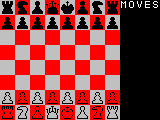
How do you play Factors?
1. Introduction
Factors is one of my math games I've got. It has almost no history whatsoever, so the history is just below the rules. This game deals with factoring numbers to getting all prime factors of a number.
This game only requires a calculator and paper and pencil [for scoring]. You may also need a clock.
2. How to play
Gameplay is very simple, simply come up with a random number that is five digits. To do so press random buttons on your calculator that are nonzero digits. Then multiply or divide random numbers [either one] two or three times. Then take the last five digits on the far right of your display [do not include the exponent, if you get one]. This gives you your random number. Then what you do is try to factor the number. For example, I got 22161 as my random number. Since is isn't a multiple of two using the divisibility trick. It can't be a multiple of five, so you have to deal with the odd-balls. I call the prime numbers 3, 7 and above the odd-balls. Write your number down if you're using a calculator that doesn't store memory, or prefer not to use it. Then, what you do is divide this number by the prime numbers in order from 3 to the square root of the number. If you come across a number that divides evenly, repeat it from your new number. In my case, I have a three that works and my new number is 7387. I try 3 again, but it doesn't go. Next comes 7 followed by 11, 13, 17, 19, etc.. Only do prime numbers, and if you don't know them, use only odd numbers. For my number, I can take out a 3, 83, and an 89. To find how much I scored, take the squares of the numbers you factored out. Thus I'd have 3^2+83^2+89^2, or 14819 points. That's fairly good. Let's say you had 02339 for the last five digits. In this case, you'd go all the way to 47 and still not come up with anything. When the number you enter in [47] passes the answer given [49.7659...], then you don't need to go any further as you've reached the square root of the number. This is the jackpot as you found a four-digit prime number. You score big too! 2339^2 is 5,470,921, which would beat just about anyone in a game, but the chances are slim of finding such large prime numbers. The highest you'll ever need to go, assuming 99999 would be up to the count of 315. For a harder game, use six digits instead of five and for an easier game, use four digits instead. If, for some reason, you get a number less than 100, you score five million points regardless of what factors you get For easy, it'd be 10, and hard at 1000. The scores are just the same. I prefer medium as you don't have to be sifting through odd numbers so much. The player [in which any number can play] with the most points at the end of a time decided by everyone wins. For the time, you and your fellow players need to decide how long they are willing to play. If one player is in the middle of something and the time runs out, let the player finish, even if he/she just started. Also, make sure that you allow everyone an equal number of plays.
Another way to get a random number, even more random is by rolling a die and flipping a coin. If you choose this method, set a standard as follows: the face value of the die plus 0 for tails and 5 for heads. If you roll a 6, reroll the die until you get something not of a 6. This provides a true 1 in 10 chance. If you get a 10 for your value, consider it a zero, and always go from left to right. For instance, let's say I rolled a 4 then got tails on the coin. 4+0 is 4 so the first digit would be a 4. On the next digit, I rolled a 2 then got heads. 2+5=7 so 7 is the next digit. Keep repeating this until you have your set number of digits.
3. History of development
Because I like randomness, math, and especially trying to find large prime numbers, I made up this game to make finding large prime numbers more fun. I've got quite a list as well, even a few 7-digit prime numbers and 6-digit prime numbers.
This game started when I was waiting for the doctor to call my name to see him and I had my calculator with me. Punching in numbers at almost random tossing in a few divides and multiplies, I tried to factor the last 5 digits, as if they were one number, to see whether it was prime. The very first prime number I got was 2339, one I memorize. From this game, created in 2001, my list of favorite numbers* outside powers of 2 and those with repeating decimals and fractions have expanded to prime numbers, especially the big ones. Because I knew that the last digits well past the decimal were almost always seemingly randomized, and the fact that pressing buttons [numbers] very quickly without manually selecting them slowly one at a time like you normally would, this provided my randomness I needed.
If you're focused on raw speed, using a spreadsheet document can speed up the process by nearly ten times. Here's how to set it up in either MSWorks' spreadsheet or Microsoft Excel:
- In cell C1, type the number two.
- In cell C2, directly below C1, type the number three.
- In cell C3, below C2, type =C2+2 to get the result of 5.
- Select ALL cells from C3 to C16384 [the very bottom of the spreadsheet], and go to edit > fill down. This'll make every cell below C3 add by two.
- In cell E1, type "my number".
- In cell E3, two cells below E1, type =RAND(). This'll give you a random number. If that doesn't work, as I'm not familiar with Excel [don't have it on my primary computer], go under the Insert menu and look for "function". Search through the list until you come across something related to RAND(), which should say, in the description below, something close to "produces a random number from 0 up to, but not including 1". Select that function and okay it.
- In cell B1, type what the last 5 digits are in cell E3 [or however many digits you want].
- In cell B2, type "=B1".
- Select ALL cells from B2 to B16384, and go to edit > fill down. All cells in the B column should be the same.
- In cell A1, type =B1/C1. This is a division statement.
- Select ALL cells from A1 to A16384 and go to edit > fill down. Check to make sure that the last cell says =B16384/C16384.
- There you have it, you're ready to start!
- Scan through all of the A column cells to see if there is a number that comes out evenly always starting from the top.
- If you see a number that came out evenly, besides a result of 1, copy that new number exactly as is into cell B1 and copy what the value was in the cell just to the right of the cell in which it came out evenly.
- If nothing shows up that came out evenly, except a 1, you've found a prime number.
- Practice this first before doing the real thing. Try the numbers 360 [which should have six factors], 801 [should have three factors], and my favorite, 2339 [should be prime].
Footnotes:
* You can see my list of favorite numbers here. You may note extras besides powers of 2 and primes as well.






